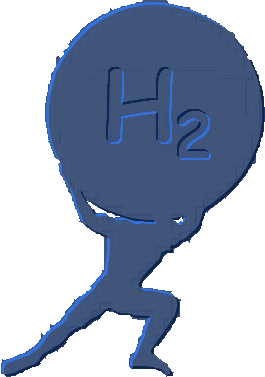R&D excellence
EREL as a member of the NCSR Demokritos Institute of Nuclear Technology and Radiation Protection has been the subject of two rigorous external evaluation exercises performed during the last four years.
Evaluation of September 2005.
This evaluation was the official “Research Assessment Exercise” organized by the General Secretariat for Research and Technology (GSRT), of the Greek Ministry of Development. The Evaluation Committee was: Prof. J.D. Jackson (The University of Manchester, UK), Prof. M. Ricotti (Dept. of Nuclear Engineering, Politechnico di Milano, Italy), Prof. G. Curzio (Dept. of Mechanical and Nuclear Engineering, University of Pisa, Italy) and Prof. J. Vujic (Dept. of Nuclear Engineering Univ. of California, Berkley, USA). The scientific evaluation is described in the report entitled “Final report of the evaluation committee submitted to the General Secretarial of Research and Technology in the Greek Ministry of Development on the evaluation of the Institute of Nuclear Technology and Radiation Protection within the National Center for Scientific Research “Demokritos””.
Extracts from the Evaluation Report are given below:
Environmental Research Laboratory (EREL): This laboratory is one of the major contributors to the output of scientific publications from the Institute and, at the same time, one of its major contributors in terms of funding. The average age of its personnel is low and is mainly made up of young and highly motivated people (6 PhDs have been hired as permanent staff in recent years). It successfully carries out both theoretical and experimental research and also provides services for industry and the private sector. It was born as a “scientific spin-off” of nuclear technology and now develops research in the important fields of energy and the environment. The high level of visibility and credibility of the laboratory at international level is demonstrated that its leader is acting as the coordinator of five EU projects and consortia involving research organizations and industries. The topics range form the development of state-of-art modelling and related software for atmospheric dispersion of pollutants, which leads also to the commercial exploitation of the CFD tools produced in the course of research, to the study of porous media for hydrogen storage (including nanoporous materials) and the structural and dynamic characterization of biological systems. It has a fully equipped laboratory for pollution measurements. The dynamism of the group is demonstrated by the wide spectrum of topics it covers in its publications.
Amongst the laboratories which it has visited the Committee wish to recommend rewarding two particularly successful research ones, the Environmental Research Laboratory and Research Reactor Laboratory, bearing in mind that these laboratories were able to increase the funding they receive from competitive programs and increase the scope of services they provide to the public and private sectors, whilst at the same time succeeding in increasing their output of high quality publications and international visibility.
Thematic report concerning excellence within the Institute of Nuclear Technology and Radiation Protection (INTRP).
Having participated in the recent review of INTRP and studied the documentation provided, it is clear to me that one group of researchers stands out in terms of clearly displaying excellence and, consequently, deserves to be rewarded financially. This is the group concerned with Environmental Research Laboratory (EREL).
Evaluation of December 2004.
This evaluation has been organised internally by NCSR Demokritos. The scientific evaluation is described in the report entitled “Report on the Scientific Committee for the Evaluation of the Institute of Nuclear Technology and Radiation Protection (INTRP)” submitted to the Director of NCSR Demokritos.
Extracts from the Evaluation Report are given below:
“The following scientific evaluation was prepared by a Committee composed of Prof. Marzio Marseguerra (Politecnico di Milano), Prof. Michel Giot (Université Catholique de Louvain), Dr. Michel Reocreux, (Institut de Radioprotection et de Sûreté Nucléaire - IRSN) and Prof. em. George Yadigaroglu (Swiss Federal Institute of Technology-Zurich - ETHZ).
The Committee has convened at the NCSR Demokritos on December 9 and 10, 2004 and evaluated the Institute of Nuclear Reactor Technology and Radiation Protection, following the instructions given to it by the Director of NCSR Demokritos. The evaluation is based on the written material provided to the Committee, including a “self assessment” prepared by the INTRP Director and Laboratories, as well as on fairly extensive visits to the various INTRP Laboratories and discussions with key staff members
Environmental Research Laboratory (EREL). The EREL uses its know-how and experience in Computational and Experimental Fluid Dynamics for the resolution of a diversity of environmental and energy-sector problems (e.g., hydrogen technology, atmospheric pollutant dispersion, simulation of underground reservoirs). It is a very dynamic and entrepreneurial young group that has international visibility and has been very successful in attracting projects and external funding, in particular EU funds and in publishing extensively in an impressive array of journals. One of their products, the computational package ADRIA-HF has become accepted for use in the EU for safety assessment of hydrogen applications. The EREL also possesses state-of-the-art equipment for on-site and off-site pollutant measurements.
In spite of its excellence, the laboratory is threatened by the volatility of EU funding and programs.”





